Character Study: An interview with Alex Mills
Playing more than a dozen characters -- in and out of drag -- is all in a day's work for Alex Mills

According to Alex Mills, A Tale of Two Cities is about “the physical transformation between the characters, the striptease in the show, and the drag number in the end.”
What, you don’t remember the striptease or drag number from the Charles Dickens classic?
Obviously, Everett Quinton’s 1988 play is a loose adaptation — about as loose as they come. This “Theatre of the Ridiculous”-style show centers on Jerry, who acts out parts from Dickens’s tale set during the bloody French Revolution — while in and out of drag, as he prepares for a show of his own.
It’s not the typical show you see at Synetic Theater, which has made its name by shaking things up — especially through its heralded “silent Shakespeare” productions and other works in which the focus is more on physical movement and less on words and dialogue.
“It’s a huge 180-degree shift from what we normally do,” concedes Mills, a longtime Synetic company member whose work in the current adaptation is further proof that the multiple Helen Hayes nominee is also a skilled actor of the traditional kind. In A Tale of Two Cities, the 26-year-old is almost always on stage — and talking almost as often — during the show’s 100-minutes, during which time he plays more than a dozen Dickensian characters in rapid succession. And all for a live audience — plus a baby, personified by Vato Tsikurishvili.
“It’s ridiculous, it’s absurd,” Mills says, noting that the absurdity is also part of “what makes it fun.” It’s all just in a day’s work for Mills, who aims to keep challenging himself as well as constantly leave theatergoers asking, as he puts it: “Man, how is he doing that? What’s going to happen next? What’s coming up?”

METRO WEEKLY: Let’s start with drag. Had you done that before this show?
ALEX MILLS: No, I have not. I have a new-found respect. I mean I had watched RuPaul’s Drag Race. But it’s hard. That was the biggest thing — there was a drag consultant for this show, and he taught me how to do the makeup. My terrifying moment every night is putting on the makeup, because [ideally] you need at least two hours to do makeup — I have to get it done in roughly 15 minutes. Onstage. With eyelashes and all that. Doing that, I was like, oh, my, god. I by no means achieve perfection, but just getting that done, it’s a lot of work.
MW: But that’s also an entertaining part of the show for the audience, watching you put on your makeup.
MILLS: During run-throughs, it got a bit slow, because I didn’t have the makeup fully down and the text was in my way. But director Serge Seiden said, “Don’t worry about it. Because it actually is really entertaining, to watch the kind of transformation happen in front of you.” Which made me a bit more relaxed.
MW: Who was the consultant?
MILLS: Hellen Wheels. He does makeup and costumes for a number of drag queens in the area. And he gave me the steps, he drew pictures. We had multiple sessions of just me and him sitting down. One night we did the makeup three times in a row. Put it on, wash it off again, put it on again. My face was utterly screaming at the end of it. But it’s just that repetition and just knowing the steps in order. And then also combining that with the text. It’s actually choreographed. Certain lines I know what steps have to be done, and in certain chunks. I have to get my highlight, contour, base, foundation and rouge on — that’s one chunk. The next scene I have to get my eyes, my lips, my eyelashes done. So it’s in parts.
MW: Do you think you’ll do drag again?
MILLS: I don’t know. Now that I know kind of how to do my makeup, I feel like I’d like to experiment with what Alex’s drag persona would be. But you’re not going to see me this Saturday in full-on drag. [Laughs.]
MW: Unless they come to the Saturday night show, of course. Let’s talk about that some more. How would you describe the play?
MILLS: It’s ridiculous. It’s absurd. There are things in the text that are off-the-wall absurdist at times. There are segues that are purely ridiculous.
There are kind of three stories happening at the same time — there’s the story of Jerry coming home and having to get ready for a drag performance. Then there’s the second layer — okay, now he has this baby, and he has to put the baby to sleep. And then the third story is A Tale of Two Cities. So it’s this mixture of these storylines, and at moments they all align. The story of Jerry putting on the makeup, and as he’s telling the story he’s talking about how Charles Darnay is in jail — and why is he confined alone? There’s a parallel between being confined in your cell alone and also being confined in this world as a gay man that can be a feeling of aloneness as well. So there’s this interesting weaving that happens within the play as well.
MW: I understand it’s not normally staged with a baby — or a live person personifying a baby. That was an idea from Synetic’s Founding Artistic Director Paata Tsikurishvili.
MILLS: Yeah, in the original play, you never actually see the baby. But the very initial concept of this that Paata kind of suggested was, “What if we have a real baby? What about that?”
There’s a lot of experimentation. That’s the real fun of it. There’s no predictable show during the run. I fully go into each performance knowing that things are going to fail, mistakes are going to happen, but just to embrace it, because that’s part of it. As Serge has said, “the piece is kind of performance art.” Because it’s not a full-on straight play. The fourth wall is not an established thing. It’s very much a dialogue between the audience and me and Vato. And so that’s what makes it fun. When mistakes happen, and you just have to ad-lib and fix things here and there — that’s the kind of sparks that make it fun, at least for me to perform.
MW: What would you say to people about why they should see it?
MILLS: It’s a spectacle. And I think some people have been a little turned off by the production. Maybe if they’re familiar with our style and what Synetic is known for, coming to this is a shock. It’s a huge 180-degree shift from what we normally do, compared to like “silent Shakespeare” productions or plays that are heavily, heavily physical. It’s infused with this absurd farce. It’s tragic at times. It’s ridiculous at times. So to have this appreciation for storytelling and what theater can be with essentially just one person on stage, and having the audience get involved and participate and just sit back: “Man, how is he doing that? What’s going to happen next? What’s coming up?”
MW: When did you realize you were gay?
MILLS: Well, I remember having a crush on my CCD teacher when I was in fourth grade. I remember that. I just remember being like, “God, he’s beautiful.” And that was that.
MW: What is CCD?
I went to public school, but CCD is like after-school Catholic study, once a week, until you get confirmed, giving you a Catholic school education.
MW: Are you still practicing?
MILLS: No. I’m not going to say that I’m agnostic or atheist or anything like that. I have ties to it of course. If you’re Catholic you either embrace it or you run away from it screaming. But I have the slightest touch of it. I still have an attachment to it.
MW: Only the slightest touch because you’re gay?
MILLS: Especially after I came out, that was a significant part of it. Just that whole notion — I’m just like, uh, no. I just don’t vibe with it. I remember as a kid going to church. And it’s just dark, and it’s very ritualistic. And you stand up at certain times and you sing the same songs, you sit down at the right time. That whole formality. I think a lot of people find it a little bit off-putting.
I definitely don’t want to get too much into it and have people go, “Oh my god, he isn’t a god-fearing man. He’s going to burn in hell.”
MW: Do you have people like that in your family?
MILLS: No, no, no. Me and my brother were raised Catholic. My mom was raised Catholic. But we don’t really practice.
MW: How was coming out to your family?
MILLS: The easiest thing in my life. I started dating this guy, and at one point I was driving home one night and I was like, “You’re being so stupid. You’re happy, you’re seeing somebody. Why would you not just own it?” So on a whim, I called my mom. And she was like, “Hello, son. What’s up?” I was like, “So, I went on a date the other night.” She goes, “Uh-hum.” And I was like, “And it wasn’t with a girl.” And she goes, “Uh-hum. Son, I hope this doesn’t offend you, but this is not going to come as much of a shock to the family.” And that was essentially that in a nutshell. I remember a few days later, my mom called me, and my brother, who’s about three years older than me, got on the phone, and he was just like, “Hey man! You know I don’t care, right? It’s cool.” It’s actually made us a lot closer. It just made us all more comfortable.
MW: And they were supportive of your acting career, and putting college on hold for that?
MILLS: Totally. They’re extremely supportive. My cousin and I are very similar. He’s about the same age as my brother. He came out when I was a sophomore in high school. I remember for the longest time I was like, oh my god. Well, I can’t come out now! The family’s going to be, we just got a whole family of gays. So I remember for the longest time that was a thing. But he came out, and then he was also an actor. And he’s now turned to studying law, which is a big switch. He’s the only other person who’s an actor.

MW: You’re playing gay in this role. How unusual is that for you?
MILLS: Actually in all the shows that I have done — at Studio, at Signature, here — I have been gay. Which is interesting because I don’t consider myself the most flamboyant type of gay man. But when I did Torch Song Trilogy — gay. Two to Tango — gay couple. Bloody Bloody maybe wasn’t gay. But at Signature Theatre [Shakespeare’s R&J] it was a story of four boys, and I got into a relationship with another boy.
MW: Does that bother you? Would you like to branch out to play more straight roles?
MILLS: I don’t care — playing gay or playing straight, really, it’s all the same.
MW: You just want to play.
MILLS: Yeah. [Laughs.]
MW: We’re coming up on pride. What does that mean to you?
I really would like it to mean something. I don’t get into the politics of gay rights, or LGBTQ — all that. I’m so supportive and happy that it’s on the political map and people are really advocating for it. But I’m a bit more introverted and I kind of stay unto myself. So I don’t really get involved. I don’t really go to pride, I don’t go to these events. I think it’s awesome that it’s happening, and it creates a positive energy for the community when it happens.
MW: You’re just young enough that the increasing acceptance of LGBT rights and especially marriage equality happened just as you were coming into your own.
MILLS: I think that’s why it made it so easy when I came out. I didn’t feel any backlash, because it’s become so mainstream and accepted now. Relatively speaking. By no means is being gay the easiest thing. Coming out isn’t easy for everybody. But it’s much more acceptable now.
If I was still living just in Fredericksburg, I don’t know if I would have come out as openly. Because even when I just go visit home, just knowing that I’m a gay man, I still feel a little bit like, oh, I’m definitely a minority. Whereas in D.C., it’s just like, who cares? And probably a lot because I’m working in theater, and everybody is like, who cares? But yeah, I can definitely see how in smaller communities, Southern communities, it’s still a little bit like, “Oh, don’t exactly say it! But we know, wink-wink. Okay, we get it.”
MW: That must factor into the reason you don’t get too involved in the LGBT community and pride activities specifically.
MILLS: Yeah. I feel comfortable with who I am. A fear that I had coming out was, if I say the words, is a dress going to fall from the sky, fall onto my body? And is my voice going to change? I always felt, I am who I am. And if I’m gay, or if I’m not, it’s not going to change who I am. And that was my biggest fear. That somehow owning it or saying it was going to all of a sudden make me a stereotypical gay man. And so I just identify as gay, but that’s not all of who I am. That’s not my passion, that’s not my goal in life, that’s not my career. You know what I mean? Being gay is not my identity, it just happens to be a thing.
MW: Have you found it to be a struggle, living as a full-time actor?
MILLS: The really great thing about being a company member at Synetic — obviously, I can go out and audition for other shows, and if I book it, that’s great. But I also always have a home base to come back to, which is nice. There is that kind of sense of family. If you’re available, then you are considered for roles in various shows. And Paata tries to challenge me with various roles.
MW: Is there a dream role you’d like to do?
MILLS: I don’t know. I just like anything that’s really challenging. It’s not necessarily, it’s not like I want to do Hamlet. But anything that’s a challenge. Like Jekyll & Hyde, that was awesome. That was a huge challenge. This is wonderful. Obviously it’s a huge challenge. When I first did Midsummer playing Puck, that was great. Anything — if I’m scared or if I feel that pressure of, oh my god, can I do this? That’s usually what really excites me and pushes me to go the extra mile.
MW: And you have that with this.
MILLS: Oh, definitely! It was so hard to memorize this text because, until we started rehearsals and Serge broke the scenes down into micro-scenes, I would just pick up the script, open it and just go, I have to know all of this? It’s like my brain kind of shut down. It was just like, nope, nope, I don’t know how to compute this. Finally, once it was broken down, I was able to digest it piece by piece and get into it my head.
MW: But you’ve got it down now. Do you ever stumble?
MILLS: Not that the audience can tell. I know the text now so well, if I mess up a line or if I don’t exactly remember it verbatim, I can paraphrase it pretty well.

MW: We should discuss the song “Gloria,” which you perform in drag, lip-syncing to Laura Branigan’s 1982 hit version. That was in the original script?
MILLS: Yes. Serge said, “Feel free to find something that clicks with you.” But at one point I was like, you know what, why spend the energy trying to attach myself to something, when it’s in the script, it’s in the material, and just connect with that? It’s become the anthem for the entire production. I mean it’s a joke — me and the crew and the stage manager all have. I don’t know if you know that app Dubsmash. We’ve been doing a lot of lip-syncing to “Gloria” with that app.
MW: “Gloria” is a curious kind of song on its own.
MILLS: I love the song. The show is supposed to be set in the ’80s. It’s not in this production. But the character of Jerry has this fascination or obsession with ’80s culture and ’80s life. He’s a bit quirky. Like his sense of style, the music he listens to, his apartment — it all kind of hearkens back to the ’80s era.
MW: So we shouldn’t read too much into what the song’s about and how it relates to the show?
MILLS: You can. It’s about relationships. And Jerry, I think he can identify with it. What’s the lyric? “If everybody wants you, why isn’t anybody calling?” He thinks he’s so fabulous, and he thinks he’s just the king of the town, but really, I think he’s very lonely. He doesn’t really have a lot of friends. This drag outlet for him is kind of his release and his community.
MW: And the baby, at a certain point, it just becomes an excuse for an audience — even when the baby can’t see him, he takes comfort in knowing that he’s there and is still focused on him. So he keeps going.
MILLS: Yeah, and I think he does these performances in his apartment, probably a lot. But this is taking it to the next level. Now he has an audience, so he goes the extra mile, to really put in the grunt work, to tell the story as kind of emotionally attached as he can, while still trying to get ready for his performance.
MW: Obviously you’re drawn to the theater and acting as a means to entertain people. But is there a deeper meaning to it for you?
MILLS: It’s a very personal thing for me. I love theater. But if you want to talk about kind of like religion — and not to get too serious — but it is kind of my religion. I joke, but I’m kind of not joking, that acting is like the only thing that I’m good at. And so doing it and loving it — like the rehearsal process, although it can be tiring and long — it’s what gives me focus and it gives me drive, and clear goals.
MW: Have you ever dealt with stage fright, or anxiety over people watching you?
MILLS: Not really. There’s always, Paata calls it — and you can phonetically spell this — the jim-jimmies. It’s a term for getting nervous before a show. But the literal meaning is when your butthole flinches because you’re nervous. So he’s always like, “You got the jim-jimmies? You got the jim-jimmies?” [Laughs.] So there’s that excitement and nervous energy. But I haven’t dealt with stage fright that’s been debilitating, it’s only been the helpful kind.
MW: What do you like to do for fun?
MILLS: Going home and just relaxing for a little bit. I like swimming, I like going to the gym. Going for jogs. I’m very simple. I always feel like I’m so boring because people ask me what I like to do for fun. And I don’t have something that’s really [crazy] — “I like skydiving or horseback riding.” I just, I dunno, I like downtime. Hanging out with specific friends.
MW: Your job is sort of your outlet for fun, I suppose.
MILLS: Yeah, and I think that’s kind of where my hang-up is, because I’m like, I have fun with what I’m doing. It’s like if you have a 9-to-5, and if you’re not necessarily in love with your job, you actively search for those things to kind of fill you up. Whereas, for me, going to the theater a couple hours early and hanging out with the crew before the show and just kind of joking — it’s fun. And performing is fun. My god, if I didn’t have fun, then why am I doing it? It would be torture!
A Tale of Two Cities runs to June 21 at Synetic Theater, 1800 South Bell St. in Arlington. Tickets are $35 to $55, or $25 for Pride Night — using the code “Pride” — on Wednesday, June 10, which includes a pre-show reception at Freddie’s Beach Bar, 555 23rd St. Call 866-811-4111 or visit synetictheater.org.
Support Metro Weekly’s Journalism
These are challenging times for news organizations. And yet it’s crucial we stay active and provide vital resources and information to both our local readers and the world. So won’t you please take a moment and consider supporting Metro Weekly with a membership? For as little as $5 a month, you can help ensure Metro Weekly magazine and MetroWeekly.com remain free, viable resources as we provide the best, most diverse, culturally-resonant LGBTQ coverage in both the D.C. region and around the world. Memberships come with exclusive perks and discounts, your own personal digital delivery of each week’s magazine (and an archive), access to our Member's Lounge when it launches this fall, and exclusive members-only items like Metro Weekly Membership Mugs and Tote Bags! Check out all our membership levels here and please join us today!









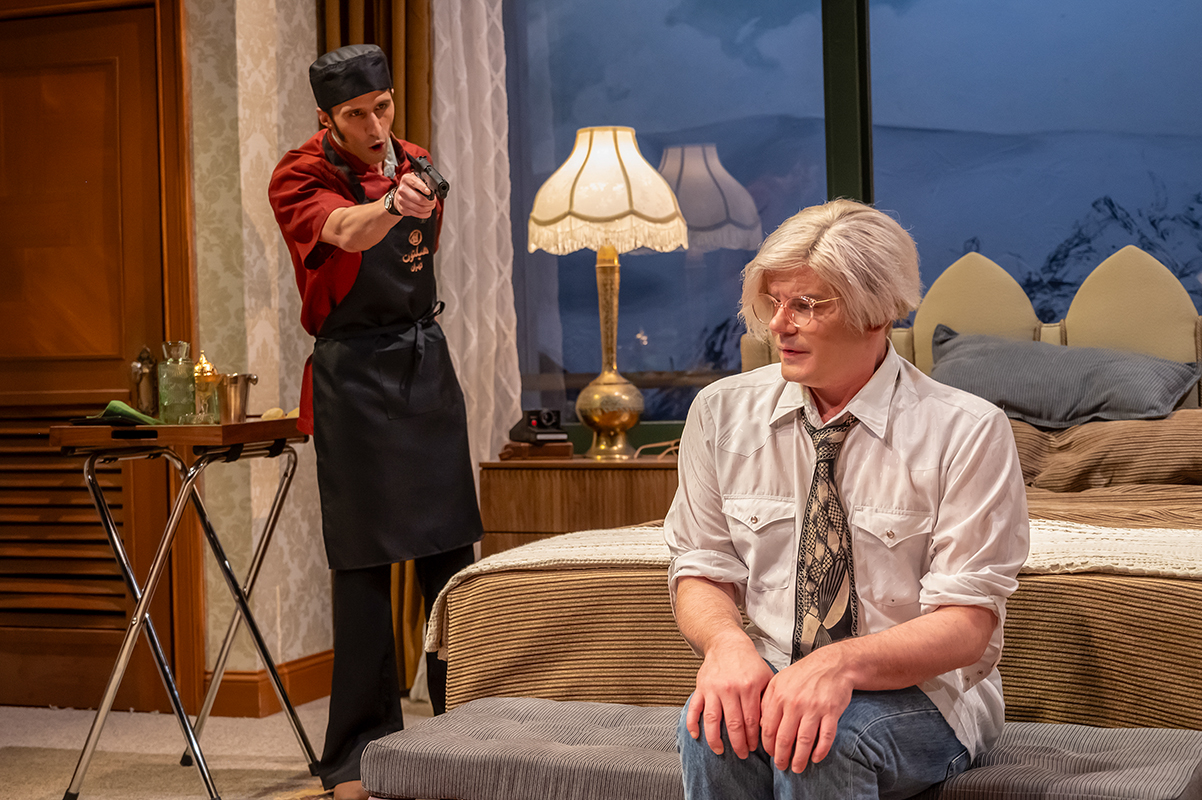
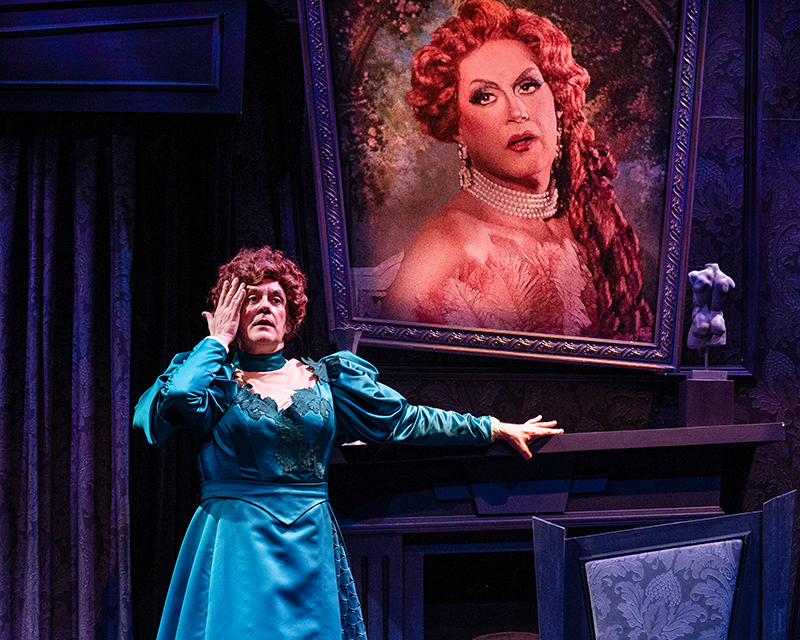
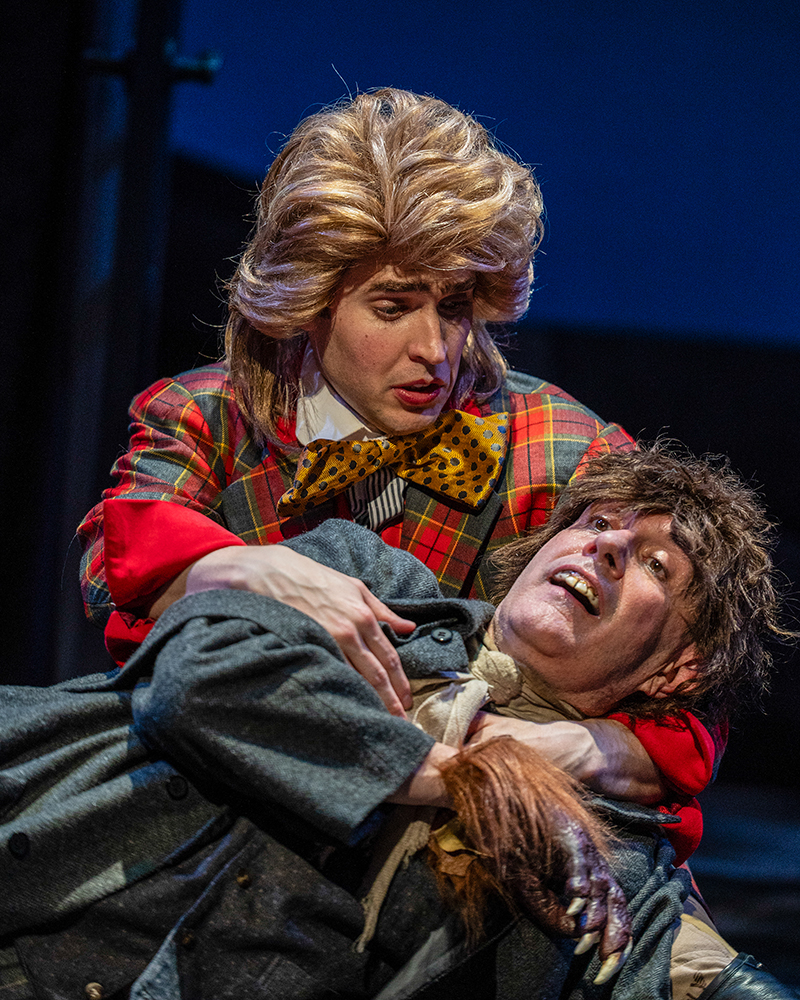










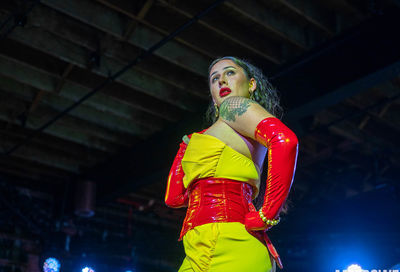
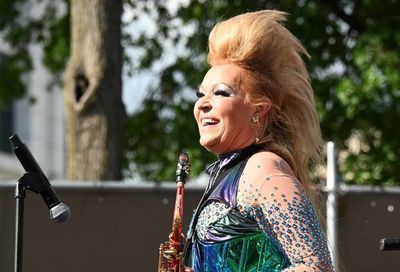
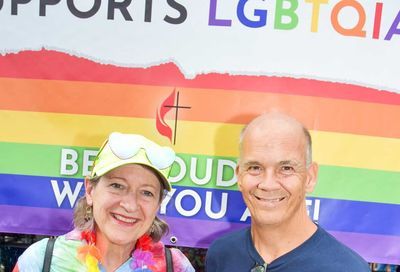
You must be logged in to post a comment.